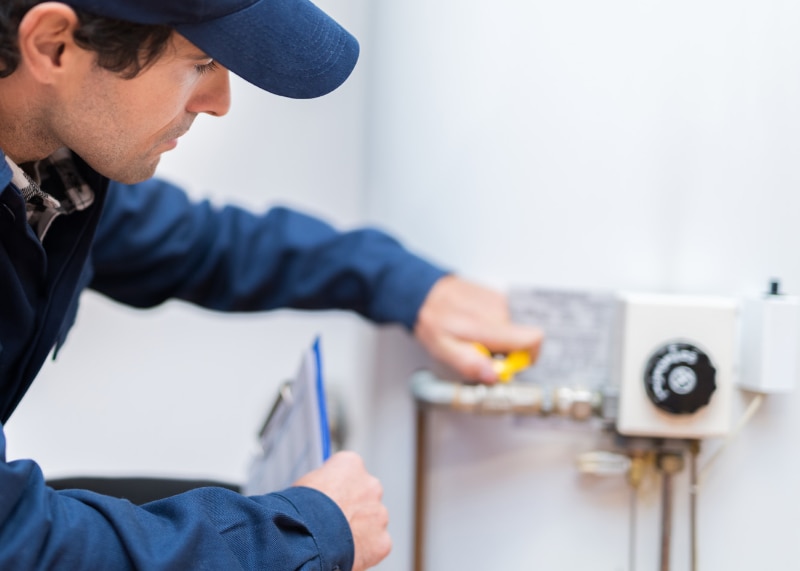Handling Regular Heater Issues
Handling Regular Heater Issues
Blog Article
Are you on the lookout for information and facts around Common Problems with Your Home Water Heater?

Imagine beginning your day without your regular warm shower. That already sets a bad tone for the remainder of your day.
Every residence needs a reliable water heater, however just a few know how to manage one. One very easy means to keep your water heater in top form is to look for faults consistently as well as fix them as soon as they appear.
Remember to turn off your hot water heater before sniffing about for mistakes. These are the hot water heater faults you are more than likely to run into.
Water also warm or too cool
Every water heater has a thermostat that determines just how hot the water gets. If the water entering into your house is as well hot despite setting a practical optimum temperature, your thermostat might be damaged.
On the other hand, also cold water might be because of a failed thermostat, a broken circuit, or improper gas flow. For instance, if you use a gas hot water heater with a damaged pilot light, you would get cold water, even if the thermostat is in ideal problem. For electrical heating systems, a blown fuse might be the perpetrator.
Not enough hot water
Hot water heater come in many sizes, depending upon your warm water needs. If you lack hot water before everybody has actually had a bath, your water heater is also small for your family size. You should take into consideration installing a larger water heater storage tank or selecting a tankless hot water heater, which uses up less room as well as is much more long lasting.
Weird noises
There are at the very least 5 kinds of sounds you can learn through a water heater, but the most common interpretation is that it's time for the water heater to retire.
To start with, you must know with the typical appears a water heater makes. An electrical heating unit may sound various from a gas-powered one.
Popping or banging audios normally indicate there is a slab of sediment in your storage tanks, and also it's time to cleanse it out. On the other hand, whistling or hissing noises might just be your shutoffs allowing some stress off.
Water leakages
Leakages can come from pipes, water connections, valves, or in the worst-case scenario, the storage tank itself. With time, water will certainly wear away the tank, as well as find its way out. If this happens, you require to replace your water heater immediately.
However, before your modification your entire tank, make certain that all pipelines are in location and that each valve works completely. If you still need aid identifying a leakage, call your plumber.
Rust-colored water
Rust-colored water suggests one of your hot water heater parts is corroded. Maybe the anode pole, or the tank itself. Your plumber will certainly have the ability to identify which it is.
Lukewarm water
Regardless of just how high you established the thermostat, you will not obtain any type of warm water out of a heater well past its prime. A water heater's effectiveness may minimize with time.
You will certainly likewise obtain warm water if your pipes have a cross connection. This implies that when you switch on a tap, warm water from the heating system moves in along with normal, cold water. A cross connection is easy to place. If your warm water taps still run after closing the water heater shutoffs, you have a cross connection.
Discoloured Water
Rust is a significant source of unclean or discoloured water. Deterioration within the water storage tank or a failing anode pole might trigger this discolouration. The anode pole safeguards the tank from rusting on the inside and must be checked yearly. Without a pole or an appropriately working anode rod, the warm water swiftly wears away inside the tank. Call a specialist water heater professional to determine if changing the anode pole will take care of the trouble; if not, change your hot water heater.
Verdict
Preferably, your water heater can last ten years before you need a modification. Nonetheless, after the 10-year mark, you might experience any one of these mistakes more routinely. At this moment, you ought to add a new water heater to your budget.
How To Troubleshoot 3 Common Water Heater Problems in Twin Cities
The Water Heater Is Leaking
A leaky cold water inlet valve A loose pipe fitting A leaky temperature and pressure relief valve A corroded anode rod A cracked tank Turn Off Your Water Heater:
Shut off your gas water heater by turning the gas valve on the unit to the “OFF” position. Shut off your electric water by switching its power off at your electrical panel. Look for a two-pole breaker labeled “water heater” and turn it to the “OFF” position. Move the ball valve connected to the water heater to be perpendicular to the piping at a 90° angle. Look for the Leak:
Depending on whether the water is coming from the tank's top or bottom, you’ll want to look for the leak in different locations.
If the leak comes from the top of the tank, carefully look for water escaping from the cold water inlet valve or loose pipe fittings. Rusted hot and cold water valves can have loose connections with the tank, with water leaking out of them.
https://mspplumbingheatingair.com/blog/how-to-troubleshoot-3-common-water-heater-problems
As a devoted reader about Water Heater Repair and Troubleshooting, I imagined sharing that piece of content was sensible. In case you appreciated our blog posting plz make sure you remember to share it. Thanks a bunch for your time. Come back soon.
Dial, we'll handle! Report this page